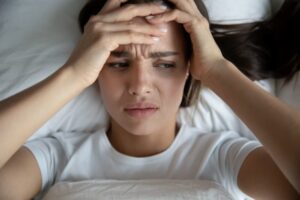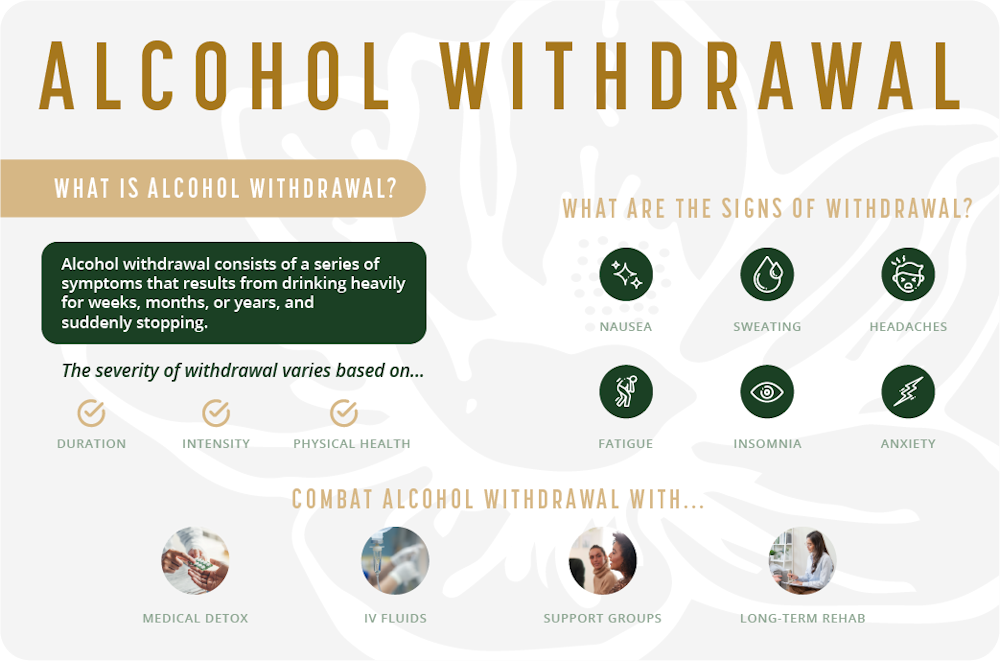 Drinking alcohol is a common social activity and a source of relaxation for many people. While moderate alcohol consumption may have some health benefits, it also leads to a range of negative consequences, such as alcohol sweats. Excessive alcohol use can lead to alcoholism, or alcohol addiction, which often requires detox and residential addiction treatment.
Drinking alcohol is a common social activity and a source of relaxation for many people. While moderate alcohol consumption may have some health benefits, it also leads to a range of negative consequences, such as alcohol sweats. Excessive alcohol use can lead to alcoholism, or alcohol addiction, which often requires detox and residential addiction treatment.
You probably understand the feeling if you regularly use alcohol. Alcohol may help you feel emotionally rested, but it also makes you physically hotter! Do you know why drinking alcohol causes you to start sweating? Come, let’s find out.
Alcohol Withdrawal and Excessive Sweating
Sweating is the process by which the body regulates its temperature. It is a normal physiological response to elevated body temperature, physical activity, stress, or other stimuli. Sweat is produced by sweat glands in the skin and is composed of water, salt, and other substances. When sweat evaporates from the skin’s surface, it cools the body and helps regulate body temperature.
When a person who has been drinking heavily suddenly stops or significantly reduces their alcohol consumption, alcohol withdrawal occurs. Alcohol is a central nervous system depressant; over time, the body becomes dependent on its presence. When the person stops drinking, the body goes into withdrawal, and various symptoms can develop.
Alcohol Sweats
Alcohol sweat is a common symptom of alcohol withdrawal. It is a condition in which an individual suffers from excessive sweating after consuming alcohol. It is a common side effect of drinking and is caused by the body’s attempt to eliminate the toxic effects of alcohol. Alcohol sweat can range from mild to severe and can be accompanied by other symptoms such as flushing, nausea, and headaches. It varies in frequency and severity from person to person, but it is typically considered a natural response to alcohol consumption. While mild sweating from alcohol withdrawal may not indicate a serious problem, excessive sweating may call for medical care.
Night Alcohol Sweats
Night sweats after drinking alcohol are another sign of alcohol withdrawal. It is excessive sweating that occurs during the night, leading to a drenching of the bedclothes and sheets. It is often a symptom of an underlying medical condition, such as infections, hormonal imbalances, or certain cancers, but can also be caused by medications, alcohol, or menopause.
Night sweating from alcohol withdrawal is uncomfortable and disturbing for sleep. It is important for individuals undergoing this condition to receive medical supervision, as it can be dangerous without the appropriate care. A healthcare professional can provide appropriate treatment and support to manage withdrawal symptoms and help individuals through the detoxification process. If night sweats are affecting daily activities or causing distress, it is important to seek medical advice.
What are the Common Symptoms of Alcohol Withdrawal
 Mild symptoms can appear as little as six hours after you put down your drink. These symptoms may consist of the following:
Mild symptoms can appear as little as six hours after you put down your drink. These symptoms may consist of the following:
- anxiety
- nausea
- shakiness
- nightmares
- insomnia
- fatigue
- headaches
- loss of appetite
- body aches
- restlessness
- muscle pains
- fever
- agitation
More serious issues, such as seizures and hallucinations, can start 12 to 24 hours after you stop drinking. It allows you to see, sense, or hear things that aren’t actually present. Other severe symptoms include
- vomiting
- rapid heart rate
- heart palpitations
- high blood pressure
- tremors
- confusion
Delirium tremens, or DTs as you’ll commonly hear them called, usually start two to three days after you stop drinking. In some cases, symptoms may start to appear up to 10 days after your last drink. The following are examples of DT symptoms that can swiftly get worse:
- body tremors
- changes in mental function
- irritability
- confusion, disorientation
- decreased attention span
- deep sleep lasting for a day or longer
- delirium
- excitement
- fear
- hallucinations
- increased activity
- quick mood changes
- sensitivity to light, sound, or touch
- sleepiness
- fatigue
- seizures
If you experience these symptoms along with regular night sweats, you may be going through alcohol withdrawal. Make sure to consult your doctor right away!
Why Does Drinking Alcohol Make Me Sweat More?

Alcohol increases sweating through a variety of different mechanisms. First off, alcohol opens blood vessels, acting as a vasodilator to increase blood flow and body warmth. Sweating can be a result of this increased body temperature and serve as a cooling mechanism. Second, alcohol stimulates sweat glands, which causes further sweating. Lastly, dehydration brought on by drinking alcohol can also increase your sweat as your body strives to maintain a fluid balance.
Sweating from alcohol withdrawal can vary in intensity based on a person’s tolerance level, overall health, and the amount of alcohol they consume. Some other physiological changes caused by alcohol include flushing, tachycardia (increased pulse), and an increase in blood pressure.
Tips on Dealing Alcohol Night Sweats
People who occasionally drink alcohol and experience light night sweats may find relief from home remedies. Following are some suggestions when dealing alcohol night sweats:
- Keep your bedroom cool. A cool bedroom can help to lessen nighttime sweating. Consider using a fan or air conditioning to keep your room cool.
- Wear breathable, light clothing while sleeping. Cotton or bamboo fabrics are breathable and light. These clothes can help you keep cool and minimize perspiration.
- Stay away from triggers. You might experience more night sweats if you consume certain meals, beverages, or medicines while under the influence of alcohol. Try to identify any triggers and stay away from them as much as possible.
- Keep hydrated. Keep yourself hydrated because doing so will help you control your body’s temperature and lessen night sweats. It replaces fluid you have lost through sweating. Aim to consume eight glasses of water or more each day.
- Maintain good sleep hygiene. A regular sleep schedule can help you lessen night sweats. Abstaining from caffeine and alcoholic beverages before bed, and creating a soothing nighttime routine can help you have a good sleep.
- Shower before bedtime. Showering can help feel more comfortable by removing extra sweat and salt from the skin.
On the other hand, if people are sweating from alcohol withdrawal and it is persistent and affecting their daily lives, it is crucial to see a doctor. A healthcare professional can provide appropriate treatment and support to manage withdrawal symptoms, including night sweats, and help individuals through the detoxification process. Treatment options may include medications to manage symptoms, behavioral therapies, and support groups.
It is important to keep in mind that these tips may not work for everyone and that the best approach for dealing with night sweats will depend on the underlying cause. If you have any questions or concerns about night sweats, it is best to speak with a healthcare professional. Learn more about addiction treatment programs in Texas here, or contact Magnolia City Detox to start treatment.
How Much Alcohol is Recommended to Drink?
The safe amount of alcohol to drink is subjective and depends on several factors, including age, weight, gender, overall health, and tolerance to alcohol. The guidelines for low-risk drinking vary depending on the country. Based on the Centers for Disease Control and Prevention (CDC) guidelines, adults who are of legal drinking age may decide to abstain from alcohol consumption or to limit their intake to no more than 2 drinks for males and no more than 1 drink for women each day.
It’s critical to remember that these are only recommendations and cannot ensure that drinking will not have a negative impact on a person. Binge drinking is seen as a pattern of alcohol consumption and can have adverse effects on one’s health. It is defined as consuming 4 or more drinks in 2 hours for women and 5 or more drinks in 2 hours for males.
Additionally, some people should not drink any alcohol at all. These people include:
- those who are or may become pregnant
- those who are on a certain medication
- those who have certain medical conditions
- those who are under 21 years old
- and those who have a history of alcohol misuse
If you have trouble avoiding alcohol, this could mean you have an alcohol use disorder, which is also known as alcohol addiction or alcoholism. It is best to speak with a healthcare provider if you have any worries.
Find The Best Addiction Treatment Programs You Need at Magnolia City Detox
A licensed residential detox center that offers safe, effective medical detox in a comfortable environment

FAQs
What causes alcohol night sweats?
Alcohol night sweats are caused by alcohol withdrawal, as the body becomes dependent on alcohol and experiences withdrawal symptoms when it is no longer present. The severity of it varies depending on factors such as the duration and amount of alcohol consumption, overall health, and previous withdrawal experiences.
How are alcohol night sweats treated?
Alcohol night sweats can be treated by managing alcohol withdrawal symptoms through some home remedies for mild symptoms and with medical supervision for severe symptoms.
Can alcohol night sweats be prevented?
Alcohol night sweats can be prevented by reducing or stopping alcohol consumption. If you are concerned about alcohol withdrawal and night sweats, it is best to seek medical advice before making any changes to your alcohol consumption.
How long does alcohol night sweat last?
Alcohol withdrawal symptoms, including night sweats, peak within the first 24 to 48 hours after the last drink and subside within 5 to 7 days. Symptoms can persist for weeks or even months, and it is important to seek medical advice if symptoms are affecting daily activities or causing discomfort.
Is it safe to drink alcohol if I experience night sweats?
The safety of drinking alcohol depends on several factors, including age, weight, and gender. Alcohol can cause negative health effects, including addiction and withdrawal symptoms such as night sweats. If you are concerned about alcohol and night sweats, it is best to speak with a healthcare professional.

















